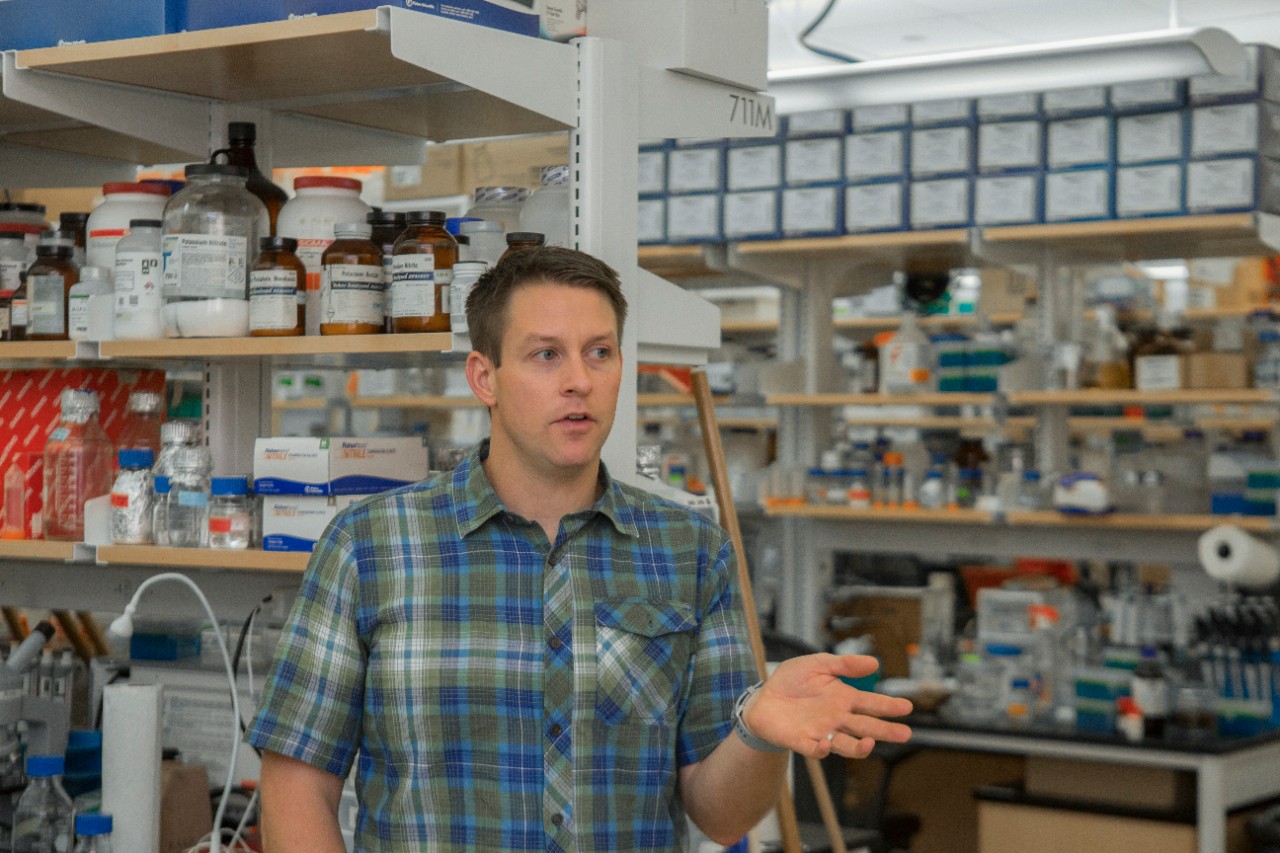
Fox19: Ticks on rise across Tristate
UC expert explains risks of tick-borne illness in Cincinnati
Fox19 visited the biology lab of a University of Cincinnati professor to learn more about the growing risks of tick-borne illness across Greater Cincinnati.
UC College of Arts and Sciences Professor Joshua Benoit studies ticks, mosquitoes and other pests that can transmit disease to people to learn about the health risks to people and ways to mitigate them.
Benoit told Fox19 that Cincinnati is seeing new species of ticks than historically called the area home.
“We never used to have Gulf Coast ticks in Cincinnati. We're also seeing black-legged ticks, which act as reservoirs for Lyme disease,” Benoit said.

A UC student holds up a tick in a vial in a biology lab. Photo/Jay Yocis/UC
Lyme disease is found across the country from Maine to California, according to the Centers for Disease Control and Prevention. But the highest rates of cases are found in the Northeast and northern states from Indiana to North Dakota.
Lyme disease often carries symptoms such as fever, headache, fatigue and joint pain. If left untreated, it can spread to the heart and nervous system. Treatment typically consists of antibiotics.
“Historically, this part of Ohio had an absence of ticks. Now we're seeing at least three different species regularly in our collections.”
In his surveillance program, Benoit has observed above-average numbers of ticks this year.
“It's been really wet. We had a mild winter. That's seems to be the perfect combination,” Benoit said.
Ticks are often found in tall grass. They use their front legs to latch onto passing people or animals. But ticks that are removed quickly do not have time to transmit infection.
“Make sure you check yourself if you've been outside. If you've been out on a hike, just check yourself,” Benoit said.
If you find one, Benoit said, a pair of tweezers is usually sufficient to remove them.
Featured image at top: UC Professor Joshua Benoit studies ticks in his lab. Photo/Joseph Fuqua II/UC
Related Stories
Love it or raze it?
February 20, 2026
An architectural magazine covered the demolition of UC's Crosley Tower.
Social media linked to student loneliness
February 20, 2026
Inside Higher Education highlighted a new study by the University of Cincinnati that found that college students across the country who spent more time on social media reported feeling more loneliness.
Before the medals: The science behind training for freezing mountain air
February 19, 2026
From freezing temperatures to thin mountain air, University of Cincinnati exercise physiologist Christopher Kotarsky, PhD, explained how cold and altitude impact Olympic performance in a recent WLWT-TV/Ch. 5 news report.
